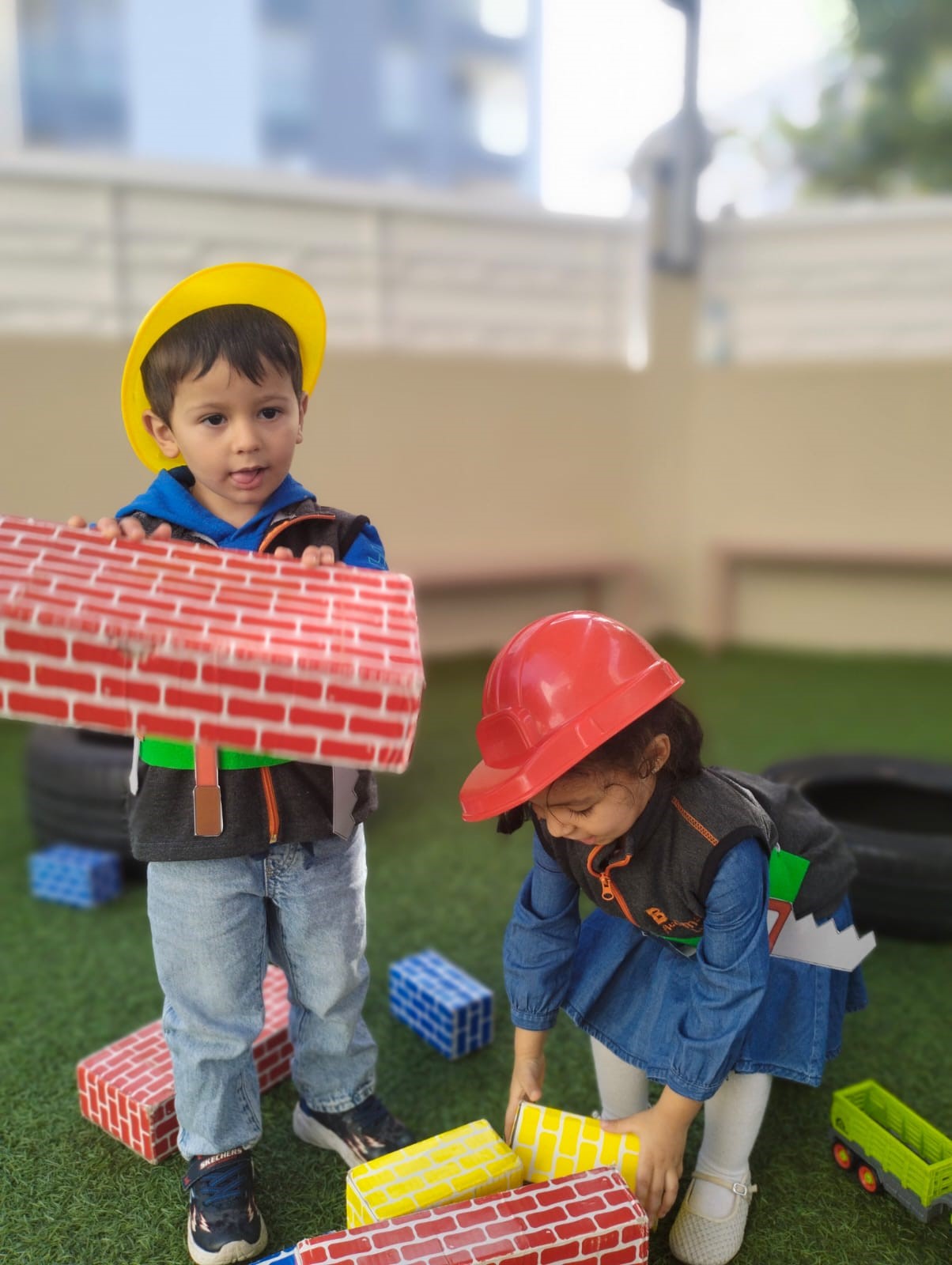+212 537714074
Learning environment
Our classroom arrangement invites children to engage in personal, meaningful, educational experiences. Children explore and build social relationships.
The classroom organization of materials and equipment supports our daily routine—children know where to find materials and what materials they can use. This encourages development of self-direction and independence. There are learning areas based on a reflection of the children's natural interests and developmental levels, as arts area, house area, music area, etc.
Our team supports children’s active learning by providing a variety of materials, making plans and reviewing activities with children, interacting with and carefully observing individual children, and leading small- and large-group active learning activities. Our indoor and outdoor environments are designed to encourage experimentation, learning and fun!
Our mission is to encourage children to actively use creative representation, language and logic to achieve decision-making, negotiation, and problem-solving skills.


At B.smart, we work with International Early Years Curriculum (IEYC), which provides a rich, inquiry-based approach to early childhood education. Through this dynamic framework, we ensure that children develop holistically—engaging their minds, bodies, and emotions in every aspect of learning. Here’s how it works:
1. Thematic Learning Units
Our curriculum is built around engaging themes such as Our World, Dinosaurs, and Space.
These themes allow children to explore important topics through a variety of activities that spark their curiosity and ignite a love of learning.
2. Developmental Learning Goals
Each theme is guided by clear, age-appropriate learning goals that focus on key developmental areas.
These goals ensure that children progress in their cognitive, social, emotional, and physical development, with milestones that are tailored to their individual needs.
3. Inquiry-Led & Play-Based Learning
We believe that children learn best through play and discovery.
By using play-based and inquiry-led methods, we create a learning environment where children ask questions, explore new ideas, and solve problems hands-on. This approach fosters critical thinking and creativity.
4. Project-Based Exploration
Throughout each theme, children engage in project-based learning that encourages them to dive deeper into real-world topics.
Whether investigating nature, studying animals, or exploring different cultures, these projects allow children to develop a deeper understanding of the world around them.
5. Ongoing Assessment & Reflection
Our teachers closely observe and document each child's learning journey.
Through regular reflections, portfolios, we track progress and celebrate individual achievements.
6. Holistic Development
We understand the importance of nurturing emotional and social growth alongside academic skills.
Our curriculum supports children in developing self-awareness, building empathy, and learning how to collaborate effectively with their peers.
7. Family Engagement
We believe that learning is most effective when it involves both school and home.
Our curriculum encourages active family involvement through special projects, activities, and open communication, creating a strong partnership between parents and teachers.
